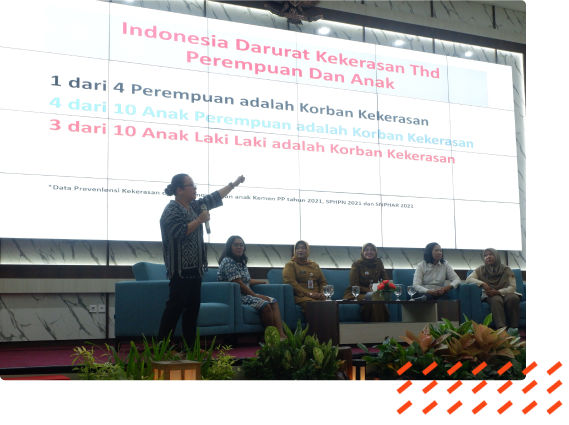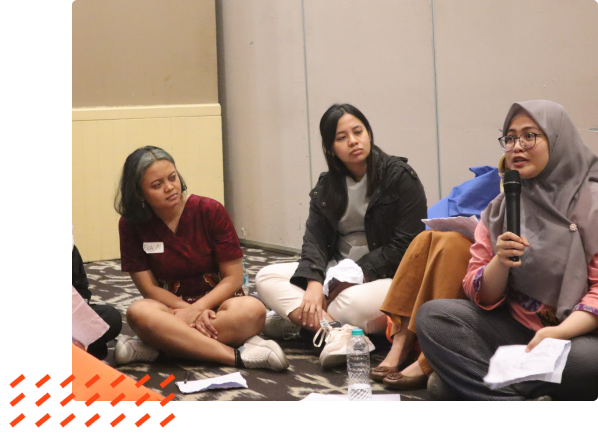Reproductive Justice
Reproductive Justice is a Human Rights framework

Reproductive Justice is the framework of the human right to control her body, choose to have or not have children, and raise children in an environment that is safe and free from violence and oppression. The Reproductive Justice Framework aims to ensure bodily autonomy and support for individuals, especially women and adolescent girls, without discrimination, in making decisions about their reproductive lives, regardless of social and economic conditions.
In Indonesia, Reproductive Health is guaranteed as a right of every citizen based on Law No. 17 of 2023 on Health. From the Reproductive Justice pillar, IPAS Indonesia Foundation plays a role in creating an ecosystem that supports women and adolescent girls to obtain their rights to prevent and overcome unplanned pregnancies in a safe manner, in accordance with applicable laws and regulations.
Why?
Every pregnancy does not always lead to a healthy birth. A miscarriage may occur before the time of labor. In addition, many women experience unwanted pregnancies, especially as a result of rape and sexual violence. It is the right of women and adolescent girls to decide whether or not to have a child because of the pregnancy and this right is guaranteed in law.

Injustice Information
Adolescent girls are often neglected in accessing reproductive health information because they are not considered to need it because they are not married. Credible information is also more difficult for women in rural areas and from low economic backgrounds to access.
Inequities in Healthcare
Health facilities in Indonesia are still unevenly distributed, especially between the eastern and western regions. Service quality standards also vary, with better health resources in urban areas than rural areas.
Injustice Climate
Climate change worsens women’s conditions, especially in the face of gender-based violence. Natural disasters also disrupt access to health services.
Social Injustice
Patriarchal power structures and social class, often make it difficult for women to fight for their rights. Women, who are marginalized by this social structure, are often the ones who have high vulnerability regarding their reproductive health. Social stigma is also an obstacle, coupled with legal uncertainty regarding women’s rights, such as access to termination of pregnancy for victims of sexual violence.